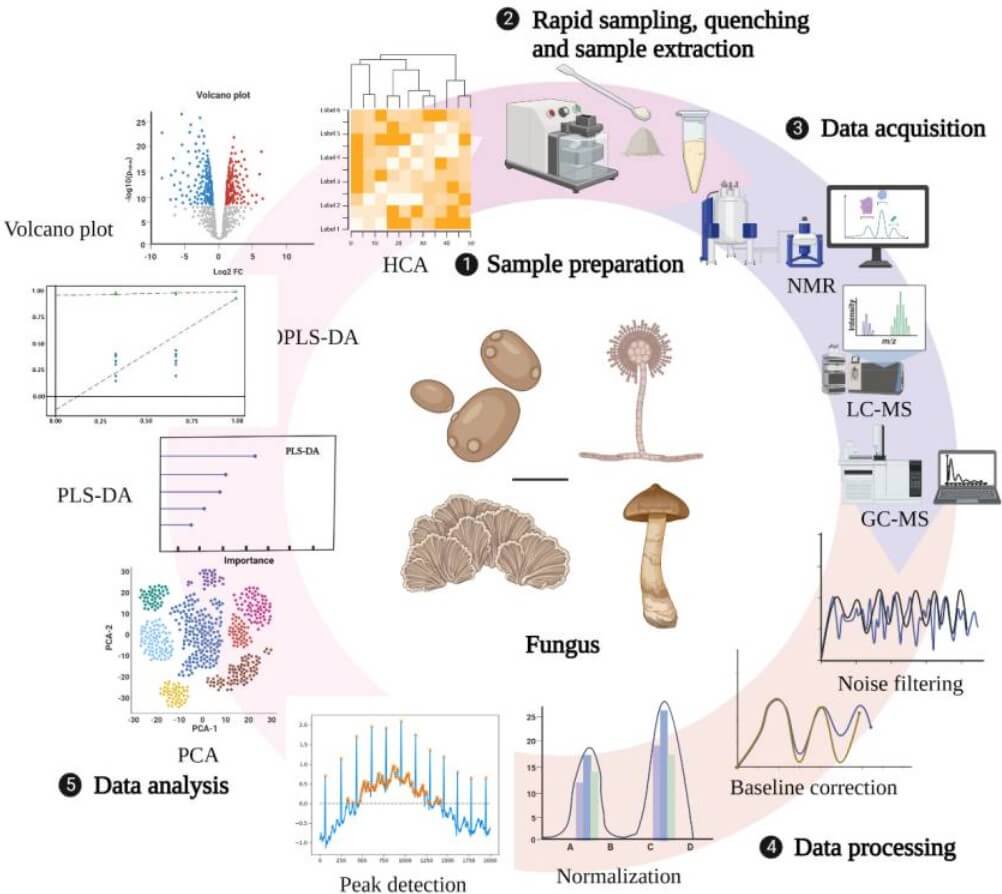Compared with genomics, transcriptomics, and proteomics, metabolomics can directly and dynamically reflect cellular physiological and biochemical processes. Metabolomics technology has become an important tool in plant pathology, especially in plant-pathogenic fungal interactions. Metabolomics can help researchers gain a deeper understanding of the plant-fungal interaction system and can be combined with other histological techniques to assist in identifying resistant plant varieties and breeding disease-resistant varieties. Lifeasible can analyze the changes in metabolites and metabolic pathways during plant-fungal interactions based on metabolomics techniques. Integrating genomics, transcriptomics, proteomics, and metabolomics analysis to build a more comprehensive plant metabolite biology information network.
 Figure 1. General technical route of metabolomics. (Li G et al., 2022)
Figure 1. General technical route of metabolomics. (Li G et al., 2022)
Fungi are one of the most important external stressors for plants. Endophytic fungi have formed symbiotic relationships with their hosts over long periods of evolution, yet some harmful fungi can cause plant diseases. Application of metabolomics techniques can be used for the identification of fungi in plant-fungal systems, determination of fungal infection mechanisms, and detection of fungal-host interactions. We provide metabolomic analysis of plant-fungal interactions to reveal the antifungal effects of plant metabolites by analyzing the changes in primary and secondary metabolites before and after infection.
Metabolic engineering can use genetic recombination techniques to manipulate the metabolic pathways of cells to increase or decrease their metabolites. Fungi can produce many organic acids, proteins, secondary metabolites, etc. Metabolic engineering of fungi has become a major focus in fungal research. We can use metabolomic analysis to achieve dynamic detection of optimization and improvement of fungal metabolic pathways and to analyze the effects of environmental perturbations or stresses on cells by metabolite levels in the absence of significant changes in both transcription and protein expression in some cells.

Lifeasible can use metabolomics technologies and data analysis methods to help customers screen for differential metabolites during a fungal infestation of plants and explore fungal-host interactions. As your trusted partner, we can meet all your fungal metabolomics analysis needs and provide you with efficient and high-quality services. If you want to know the details, please contact us.
Reference